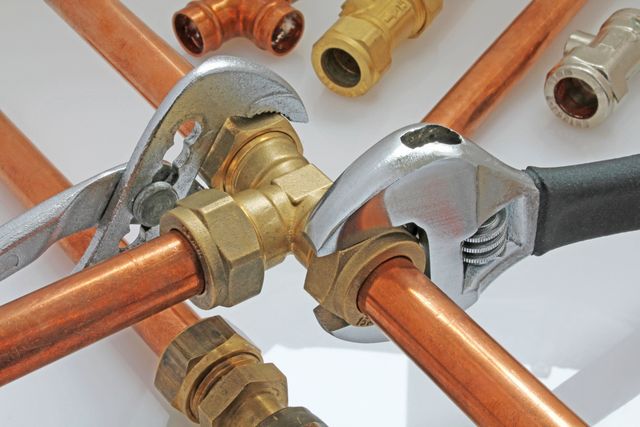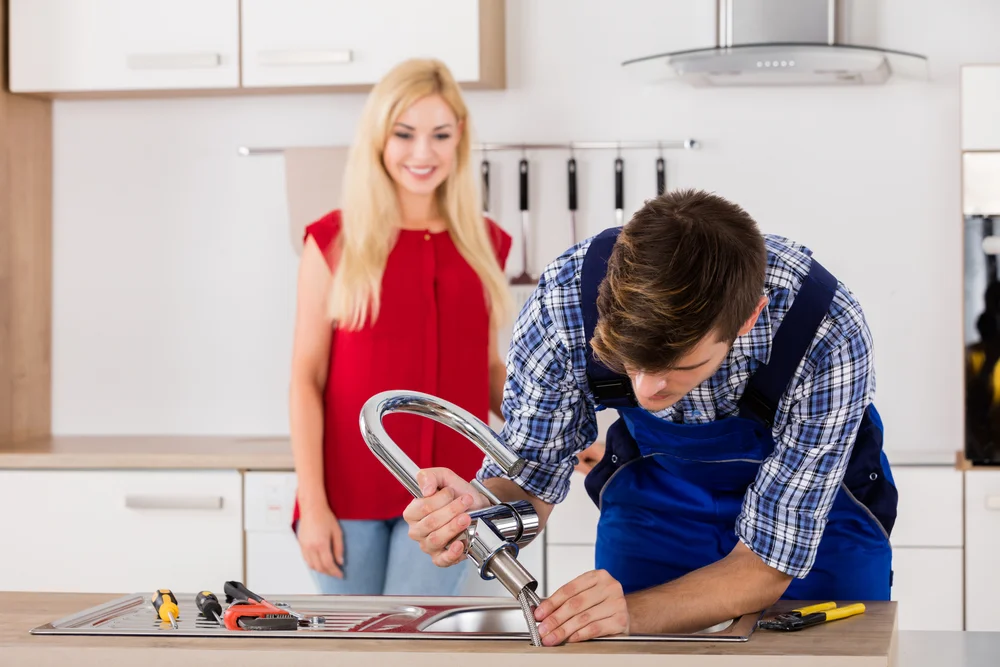Immediate Solutions for Emergencies: What to Do Until Help Arrives
Immediate Solutions for Emergencies: What to Do Until Help Arrives
Blog Article
Presented here in the next paragraphs you will find a lot of incredibly good answers in regards to What to Do During a Plumbing Emergency.

Plumbing emergencies can strike at any time, creating anxiety and prospective damage to your home. Whether it's a burst pipeline, a stopped up drain, or a leaky tap, understanding exactly how to manage the scenario up until an expert plumber gets here can conserve you from additional complications. This write-up supplies important emergency pipes suggestions to help you minimize damage and regain control throughout a plumbing crisis.
Switch off the Supply Of Water
The first step in any kind of plumbing emergency is to shut down the supply of water. For local problems, such as a leaking tap or bathroom, switch off the shutoff near the fixture. When it comes to a major leakage or burst pipeline, find your home's major water shut-off valve and transform it off promptly. Knowing the area of these valves ahead of time can save beneficial time during an emergency situation.
Turn off Your Hot Water Heater
In specific emergency situations, such as a burst pipeline, it's a good idea to shut down your water heater. This protects against overheating or damages to the unit when water quits flowing. Switch off the power supply to the water heater (electrical or gas) and allow it cool off to stay clear of potential threats.
Temporarily Quit a Ruptured Pipe
A ruptured pipe can cause substantial water damage in mins. To mitigate the problem:
Call a specialist plumber right away to resolve the problem permanently.
Have an Emergency Situation Pipes Kit
Prepare a fundamental pipes emergency situation kit to deal with small concerns effectively. Your kit must include:
Having these devices accessible can make a significant difference in your capability to handle emergency situations.
Unclog Drains Pipes Safely.
A clogged drain can be a discouraging and untidy problem. Below's just how to tackle it:.
If these techniques do not work, prevent utilizing extreme force, as it might get worse the clog.
Take Care Of Overflowing Toilets.
An overruning bathroom can trigger instant mayhem. Here's what you should do:.
Address Tiny Leaks with Temporary Solutions.
Little leakages can swiftly become substantial issues if left unchecked. Use these short-lived repairs until specialist aid shows up:.
While these solutions aren't long-term, they can aid lessen water loss and damage.
Manage Frozen Pipeline Meticulously.
In chillier climates, icy pipes are an usual emergency situation. If you think a frozen pipeline:.
Know When to Call an Expert.
While quick fixes can help momentarily, specific pipes problems call for instant professional attention. Call a plumbing professional if:.
Promptly calling a specialist guarantees the concern is resolved properly and prevents additional difficulties.
Avoid More Damage.
Taking quick activity to minimize damage can conserve you time and money over time. Below's how:.
Conclusion.
Plumbing emergencies can be frustrating, yet with the right understanding and tools, you can handle the scenario effectively until assistance gets here. By switching off the water supply, dealing with little leakages, and making use of short-lived fixes, you can minimize damage and keep your home safe. Keep in mind, these pointers are short-lived solutions; always speak with a certified plumbing technician to take care of the origin of the trouble. Prep work and fast reasoning are your best allies in any plumbing emergency situation.
8 Helpful Tips for Managing Plumbing Emergencies at Home
If your plumbing system hasn’t failed once, wait for it because almost everyone has a story to tell. Sometimes, it could be simple emergencies such as a leaking pipe, a blocked cistern, or even a big burst pipe. In situations like this, you need to have some handy tips to save you some money and from possible damages.
Take care of minor issues early.
Sometimes, you could have avoided an emergency by taking proactive measures while it was still early. Some major plumbing emergencies can be a result of an ignored minor issue. We recommend that you have items like plumbing tapes and other related items. A plumbing tape can allow you to manage minor leaks before the plumber arrives.
Cut off the water supply.
This tip is essential in almost any type of leakage problem. For problems like minor leakages in the toilet or kitchen, turn off the supply that takes water to the affected pipes. If the leakage is a major pipe, you must shut off the supply valve to the entire building. This will help you avoid flooding your home and neighbors if you share a flat.
Know your plumbing system
Folks typically move into a new apartment without understanding the water supply around the building. This can prove disastrous if a water emergency arises and the plumber is far away. The previous tip will prove useless if you don’t practice this one. More importantly, know where your water shut-off valve is located – you’ll need that knowledge to prevent potential home floods.
Have some common handy tools
There are lots of plumbing emergencies that you can handle without hiring a plumber. That’s why you must keep some tools available always. Some tools that you can use to fix simple plumbing emergencies easily include plumbing tapes, screwdrivers, thread seal tapes, plungers, pliers, tape measures, and rubber gloves.
Insulate your pipes from cold
You’ll save yourself from many plumbing expenses if you protect your water pipes from the cold. This is because of the harmful effects that cold weather can have on your pipes. During winter, your pipes can burst from being overly expected to freezing temperatures. So, make sure insulators are there to keep the pipes working correctly.
Avoid practices that will clog your toilet.
Many people indulge in practices that can damage the plumbing system of the entire building. One of these is when they use their toilet to dispose-off garbage. They flush all kinds of things, such as paper towels, bandages, hairs, female sanitary products, etc., down the toilet. This will block your toilet in the long run, incurring unnecessary expenditures. Dump such waste in the trash instead.
Check your dials regularly.
Sometimes, there could be leakages in your home without noticing them in time. So, constantly monitor your water meter dial. If the dial is reading when there is nobody using water, this is an indicator that there is leaking. Check for leaks immediately. Call a plumber as soon as possible if you can’t find any.
https://www.constructionplacements.com/8-helpful-tips-for-managing-plumbing-emergencies-at-home/

Hopefully you enjoyed our article about . Thanks so much for taking the time to read our content. Do you know about anybody else who is inquisitive about the niche? Please feel free to share it. Thank you for going through it.
Book Report this page